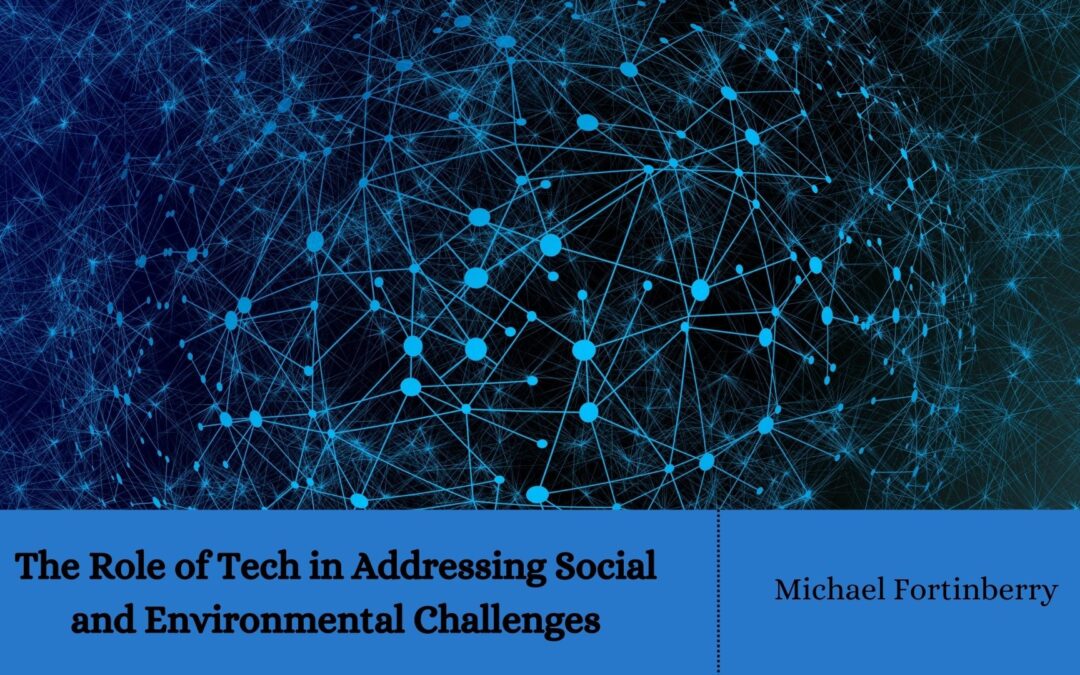In an era marked by pressing social and environmental challenges, technology has emerged as a powerful catalyst for change. From climate change and inequality to healthcare and education, technology plays a vital role in addressing and mitigating these complex issues.
- Enhancing Access to Education and Knowledge
Technology has revolutionized the way we access and share knowledge. With the rise of online learning platforms, remote education tools, and digital libraries, education is becoming more accessible to individuals worldwide. Technology has bridged the gap between geographical barriers, providing learning opportunities to those who may have otherwise been deprived of quality education. Additionally, innovative tech solutions like augmented reality (AR) and virtual reality (VR) are transforming the learning experience, making it more engaging and interactive.
- Improving Healthcare and Wellness
Advancements in healthcare technology have led to significant improvements in diagnosis, treatment, and patient care. From telemedicine and wearable devices to artificial intelligence (AI) and data analytics, technology has made healthcare more accessible and efficient. Remote monitoring systems enable healthcare professionals to remotely track patient conditions, ensuring timely interventions. AI-powered algorithms analyze vast amounts of medical data to detect patterns, identify potential risks, and personalize treatment plans. Such tech-driven solutions are revolutionizing healthcare, extending its reach to underserved communities, and improving health outcomes.
- Empowering Social Activism and Advocacy
Technology has become a powerful tool for amplifying social activism and advocacy efforts. Social media platforms enable individuals and communities to voice their concerns, share stories, and mobilize support for important causes. Online campaigns and crowdfunding platforms have facilitated grassroots movements, giving rise to impactful initiatives and social change. Technology has democratized access to information and empowered individuals to hold institutions and governments accountable, fostering transparency and promoting social justice.
- Mitigating Climate Change and Promoting Sustainability
Climate change poses one of the most significant challenges of our time, and technology is playing a crucial role in addressing it. Renewable energy technologies, such as solar and wind power, are becoming more accessible and affordable, reducing reliance on fossil fuels. Smart grids and energy management systems optimize energy consumption, leading to greater efficiency. Advanced sensors, data analytics, and Internet of Things (IoT) devices enable real-time monitoring of environmental parameters, facilitating more informed decision-making for sustainable practices. Additionally, innovative solutions in agriculture, transportation, and waste management are further contributing to the global sustainability agenda.
- Fostering Collaboration and Global Connectivity
Technology has connected the world like never before, enabling collaboration and knowledge sharing on a global scale. Through digital platforms, individuals, organizations, and governments can collaborate across borders to tackle shared challenges. Technology has enabled international cooperation in research and development, leading to breakthroughs in various fields.
The role of technology in addressing social and environmental challenges cannot be overstated. From improving access to education and healthcare to empowering social activism and promoting sustainability, technology has proven to be a powerful force for positive change. It is essential to leverage the potential of technology while ensuring equitable access and ethical use. By harnessing innovation, collaboration, and the transformative power of technology, we can pave the way for a more sustainable, inclusive, and prosperous future.

